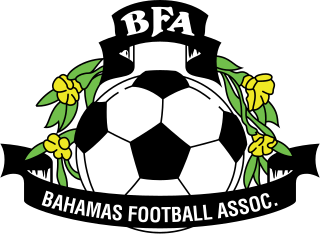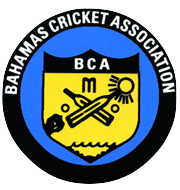
The Bahamas, officially the Commonwealth of The Bahamas, is an island country within the Lucayan Archipelago of the West Indies in the Atlantic Ocean. It contains 97% of the Lucayan Archipelago's land area and 88% of its population. The archipelagic state consists of more than 3,000 islands, cays, and islets in the Atlantic Ocean, and is located north of Cuba and northwest of the island of Hispaniola and the Turks and Caicos Islands, southeast of the U.S. state of Florida, and east of the Florida Keys. The capital is Nassau on the island of New Providence. The Royal Bahamas Defence Force describes The Bahamas' territory as encompassing 470,000 km2 (180,000 sq mi) of ocean space.

The economy of the Bahamas is dependent upon tourism and offshore banking. The Bahamas is the richest country in the West Indies and is ranked 14th in North America for nominal GDP. It is a stable, developing nation in the Lucayan Archipelago, with a population of 391,232 (2016). Steady growth in tourism receipts and a boom in construction of new hotels, resorts, and residences had led to solid GDP growth for many years. The slowdown in the Economy of the United States and the September 11 attacks held back growth in these sectors from 2001 to 2003.

The earliest arrival of people in the islands now known as The Bahamas was in the first millennium AD. The first inhabitants of the islands were the Lucayans, an Arawakan language-speaking Taino people, who arrived between about 500 and 800 AD from other islands of the Caribbean.

"March On, Bahamaland" is the national anthem of the Bahamas. Timothy Gibson composed the music and authored the lyrics. It was adopted as the national anthem in 1973, when the country gained independence from the United Kingdom.
This page provides an index of articles on rail transport by country.

Andros Island is an archipelago within The Bahamas, the largest of the Bahamian Islands. Politically considered a single island, Andros in total has an area greater than all the other 700 Bahamian islands combined. The land area of Andros consists of hundreds of small islets and cays connected by mangrove estuaries and tidal swamplands, together with three major islands: North Andros, Mangrove Cay, and South Andros. The three main islands are separated by bights, estuaries that trifurcate the island from east to west. It is 167 kilometres (104 mi) long by 64 km (40 mi) wide at the widest point.

Local government in The Bahamas exists at two levels: 32 districts and 41 towns. The boundaries of districts are defined by the First Schedule of The Bahamas Local Government Act 1996, defined with reference to parliamentary constituency boundaries. The Second Schedule lists 13 districts which are divided into town areas. Towns are governed by directly elected town committees. Second Schedule districts are governed by nine-person district councils composed of the chairs of the town committees, and if numerically required, additional people elected by the town committees. The 19 Third Schedule districts are unitary authorities which cannot be divided into towns. They are governed by nine-person district councils which are directly elected by voters. The powers of Second Schedule and Third Schedule councils are slightly different, and the Third Schedule district known as the City of Freeport has a slightly different list of enumerated powers.

The Abaco Islands lie in the northern Bahamas, located about 193 miles east of Miami, Florida. The main islands are Great Abaco and Little Abaco, which is located just west of the northern tip of Great Abaco. There are several smaller barrier cays, of which the northernmost are Walker's Cay and its sister island Grand Cay. To the south, the next inhabited islands are Spanish Cay and Green Turtle Cay, with its settlement of New Plymouth, Great Guana Cay, private Scotland Cay, Man-O-War Cay, and Elbow Cay, with its settlement of Hope Town. Southernmost are Tilloo Cay and Lubbers Quarters. Another of note off Abaco's western shore is Gorda Cay, now a Disney-owned island and a cruise ship stop renamed Castaway Cay. Also in the vicinity is Moore's Island. On the Big Island of Abaco is Marsh Harbour, the Abacos' commercial hub and the Bahamas' third largest city, plus the resort area of Treasure Cay. Both have airports. A few mainland settlements of significance are Coopers Town and Fox Town in the north and Cherokee and Sandy Point in the south. Administratively, the Abaco Islands constitute seven of the 31 Local Government Districts of the Bahamas: Grand Cay, North Abaco, Green Turtle Cay, Central Abaco, South Abaco, Moore's Island, and Hope Town.

The Bahamas Football Association (BFA), is the official governing body of the sport of Association football in The Bahamas. Founded in 1967 and headquartered in Nassau, the federation is a full member of FIFA since 1968 and governs Bahamian football at the international, professional, and amateur levels, including: the men's and women's national teams, BFA Senior League, youth organizations, and the beach soccer national teams. BFA sanctions the national cup Bahamas President's Cup, Grand Bahama FA Cup, and New Providence FA Cup tournaments. The BFA is also a member of the Caribbean Football Union and CONCACAF.

The Bahamas national cricket team is the team that represents The Bahamas in international cricket. The team is organised by the Bahamas Cricket Association (BCA), which became an affiliate member of the International Cricket Council (ICC) in 1987 and an associate member in 2017. The national team is first recorded as playing in 1983, but did not feature in an international tournament until 2001, when it played in the inaugural Americas Affiliates Championship. Since then, the Bahamas have regularly participated in ICC Americas tournaments, as well as on one occasion in a World Cricket League event. The team was also invited to the 2006 and 2008 Stanford 20/20 tournaments, where matches had full Twenty20 status.

The following outline is provided as an overview of and topical guide to The Bahamas:

The monarchy of the Bahamas is a system of government in which a hereditary monarch is the sovereign and head of state of the Commonwealth of the Bahamas. The current Bahamian monarch and head of state since 8 September 2022, is King Charles III. As sovereign, he is the personal embodiment of the Bahamian Crown. Although the person of the sovereign is equally shared with 14 other independent countries within the Commonwealth of Nations, each country's monarchy is separate and legally distinct. As a result, the current monarch is officially titled King of the Bahamas and, in this capacity, he and other members of the royal family undertake public and private functions domestically and abroad as representatives of the Bahamian state. However, the King is the only member of the Royal Family with any constitutional role.

Education in the Bahamas is compulsory between the ages of 5 and 16. As of 2003, the school attendance rate was 92% and the literacy rate was 95.5%. The government fully operates 158 of the 210 primary and secondary schools in The Bahamas. The other 55 schools are privately operated. Enrollment for state primary and secondary schools is 50,332, with more than 16,000 students attending private schools. Some public schools lack basic educational materials and are overcrowded. The Bahamas Union of Teachers (BUT) were the ones who acted to create some reform for their weakening education systems. The island has an Education Act that was revised in 1996 and is under control of the Prime Minister. As of 1996, the Education Act states that education is free for children between the ages of 5 and 16. The University of the Bahamas, established in Nassau in 1974, provides programs leading to bachelors and associate degrees. Several non-Bahamian colleges also offer higher education programs in The Bahamas. Generally, the academic year in The Bahamas goes from late August or early September to late May or early June for primary and secondary schools and late April/early May for college.

The Bahamas has a strong bilateral relationship with the United Kingdom, represented by a High Commissioner in London. The Bahamas also associates closely with other nations of the Caribbean Community (CARICOM).

The prime minister of The Bahamas is the head of government of The Bahamas. The prime minister is formally appointed into office by the Governor-General of The Bahamas, who represents Charles III, the King of The Bahamas.
Cannabis in the Bahamas is illegal.